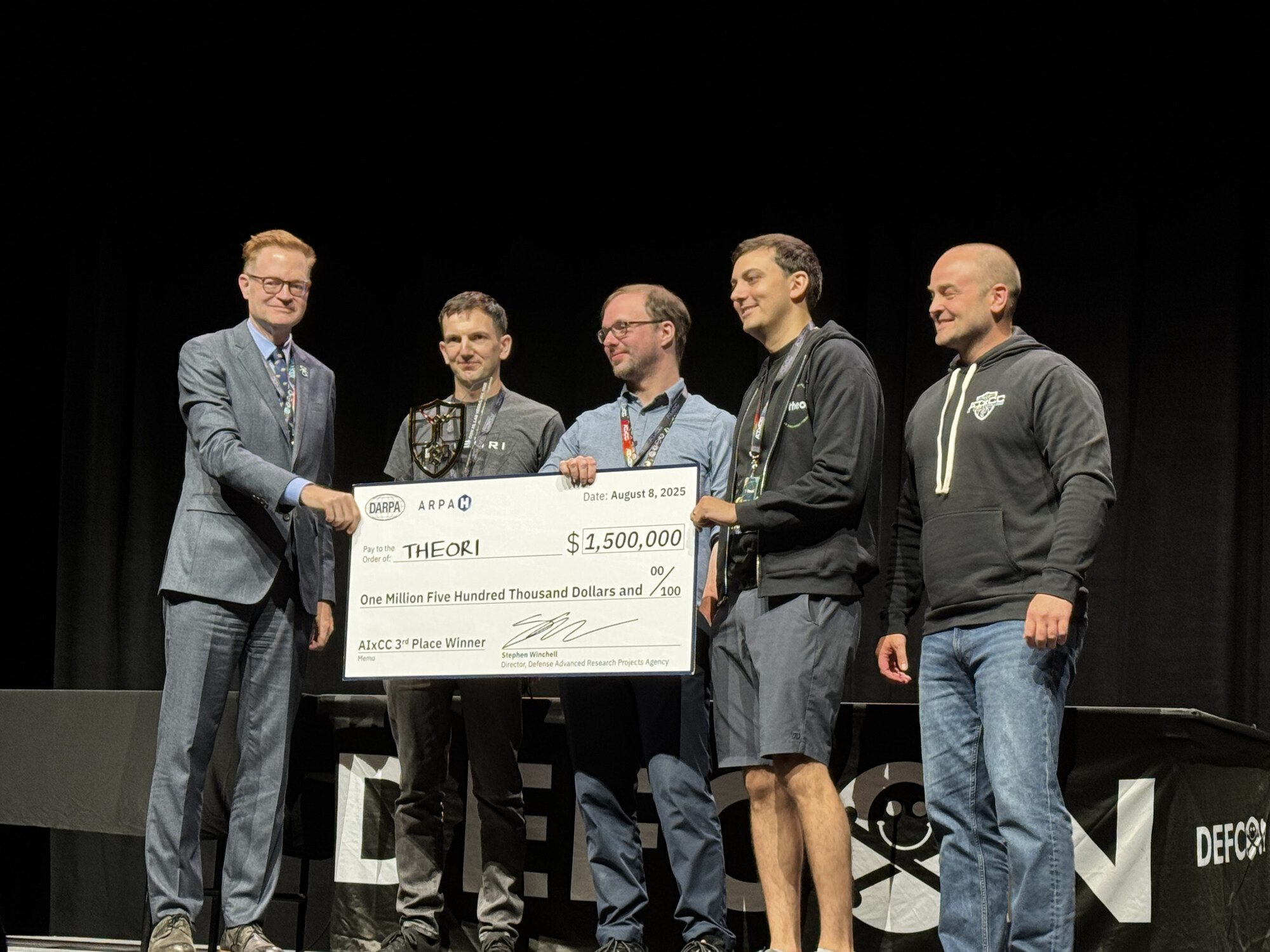Theori Wins $1.5 Million at DARPA's AI Cyber Challenge

Theori has won a $1.5 million prize at the Defense Advanced Research Projects Agency's (DARPA) AI Cyber Challenge, as announced in a press release. The competition took place at DEF CON 33 in Las Vegas, a major cybersecurity conference.
The AI Cyber Challenge, led by DARPA and the Advanced Research Projects Agency for Health (ARPA-H), tasked participants with developing AI systems capable of autonomously identifying and repairing security flaws in critical open-source software. Theori's AI system, named "Robo Duck," was among seven elite finalists and successfully identified 34 vulnerabilities, including zero-day vulnerabilities, without human intervention.
This achievement follows Theori's first-place victory in the 2024 semifinals, where they won a $2 million prize. Additionally, Theori also triumphed in the DEF CON Capture the Flag competition for the ninth time and received the Best Privilege Escalation award at the 2025 Pwnie Awards for discovering a critical Linux kernel vulnerability.
We hope you enjoyed this article.
Consider subscribing to one of our newsletters like Cybersecurity AI Weekly, Defense AI Brief or Daily AI Brief.
Also, consider following us on social media:
More from: Cybersecurity
Subscribe to Cybersecurity AI Weekly
Weekly newsletter about AI in Cybersecurity.
Whitepaper
Stanford HAI’s 2025 AI Index Reveals Record Growth in AI Capabilities, Investment, and Regulation
The 2025 AI Index by Stanford HAI provides a comprehensive overview of the global state of artificial intelligence, highlighting significant advancements in AI capabilities, investment, and regulation. The report details improvements in AI performance, increased adoption in various sectors, and the growing global optimism towards AI, despite ongoing challenges in reasoning and trust. It serves as a critical resource for policymakers, researchers, and industry leaders to understand AI's rapid evolution and its implications.
Read more
